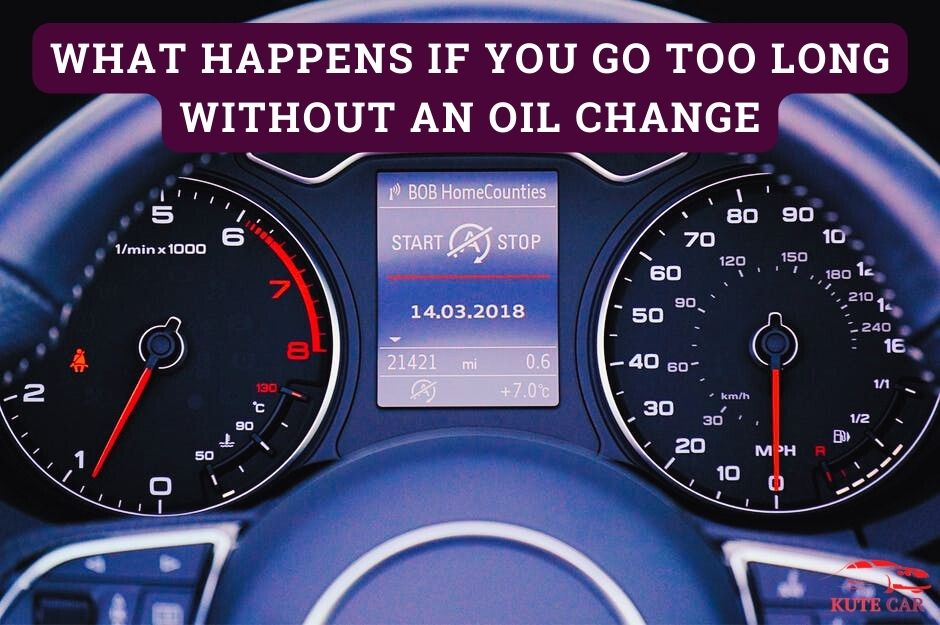What happens if you go too long without an oil change? In answering this question, we’ll use a person’s body analogy. Engine oil plays the same role in your car as blood does in your body. In the same way, blood moves throughout your body, engine oil moves through your car’s engine, lubricating and protecting its components (big and small). However, unlike human blood, where you can do without a blood transfusion, the performance and reliability of your car are primarily tied to how well your engine oil works.
Why is an oil change meaningful?
You must change the oil regularly to keep your vehicle in good working order. Ensuring the proper maintenance of your vehicle’s engine components is a principal function of oil in an engine. As it circulates through the engine, the oil provides a protective layer between its moving parts, drawing heat away from the engine and carrying away dirt and metal.
Over time, heat, air, and humidity exposure makes your car oil less effective. Debris clogs the oil filter, and oxidation thickens the oil into deposits. Mud and debris wear down the engine parts that the oil is supposed to protect, leading to costly repairs. But there is a way to avoid all this with time and money!
The Significance and Importance of Regular Oil Changes
An oil change is a crucial maintenance task for vehicles that use internal combustion engines. It involves replacing the old engine oil with fresh, clean oil.
Regular oil changes remove these harmful particles, preventing them from clogging the engine and causing damage.
Fresh oil contains additives that help keep the engine clean by preventing the buildup of sludge and deposits. Regular oil changes ensure a cleaner and healthier engine.
Clean engine oil reduces friction and allows the engine to operate more efficiently.
How long can you go without an oil change?
Oil change for older cars
If you have an old car, it can be necessary depending on how you drive and handle your vehicle at any given time. Your car can be considered a “duty” when you use it for short trips, including long stops and rides. Other cases include driving in inclement weather conditions or using it for heavy transport.

Of course, you must change the oil often if you do this often. We recommend leaving the used car at home if you’re going more than 3 000 kilometers.
Oil Change for Newer Cars
Older cars have a system that monitors oil life and decides when it will be changed, as explained above. Some systems use time and distance traveled, while others use driving conditions to detect when the oil starts to fail. If it’s time to change the oil, you’ll get an alert on the dashboard, regardless of the oil monitoring system.
So knowing how long your car will go without an oil change is much simpler with newer cars. When you receive an oil change warning, delaying an oil change means you risk damaging your engine and increasing the likelihood of costly repairs.
That said, the period was also influenced by oil technology. How long can I go without a synthetic oil change? Depending on the vehicle’s age and driving condition, synthetic oil engines are known to last up to 15,000 miles after an oil change.
What if you don’t change the oil?
Once, our Falls Church branch received a car that had driven more than 12,000 miles since its last oil change, far exceeding the recommended mileage. The engine was running almost completely dry, and the pistons were stuck inside the engine.
The entire engine had to be replaced as it was beyond repair. This is because once engine oil turns to sludge, it doesn’t conduct heat away from the engine or lubricate its components.
Since all moving parts rub metal against metal at high temperatures, they deform and wear out. Eventually, the motor will either burst the seal or jam. When starting the car, you may hear a slight “click” or nothing. It is impossible to repair the motor once it has been tied up; a replacement will be needed.
Consequences of Skipping an oil change
Reduced lubrication and Increased Friction
As oil ages and becomes contaminated, it loses its ability to effectively lubricate engine parts. This can increase friction between moving parts, leading to excessive wear and possible damage.
Accumulation of Harmful Deposits
Without regular oil changes, the engine oil can build up dirt, debris, and other contaminants. These deposits can clog the oil filter, restrict oil flow and interfere with proper lubrication. Over time, the buildup of harmful deposits can negatively impact engine performance.
Engine overheating and Damage

Insufficient lubrication and the presence of deposits can cause the engine to overheat. High temperatures can further degrade the oil and accelerate engine wear. This may result in significant engine damage and possibly expensive repairs or replacements if dealt with after some time.
Reduced Energy Efficiency
If the engine is inadequately lubricated, it must exert more effort to avoid friction increases. This extra effort reduces fuel efficiency, resulting in more frequent gas stations and increased fuel costs.
Benefits of Regular oil Changes
Regular oil changes offer several benefits that contribute to your vehicle’s overall health and performance. Let’s explore some of the following benefits:
Extend Engine Life
Periodic oil changes help prolong the life of your engine by providing proper lubrication and reducing wear. Not needing expensive repairs or premature engine replacement can lead to many savings over time.
Maintain Peak Performance
Clean, high-quality oil ensures your engine is running at its best. Regular oil changes help maintain peak performance, ensure smooth acceleration, improve fuel efficiency and reduce emissions.
Save money on Repairs.
Preventive maintenance, such as regular oil changes, can help identify potential problems early. By addressing minor problems quickly, you can avoid major breakdowns and costly repairs.
Ensuring Warranty Compliance
Still, it’s essential to follow the manufacturer’s suggested maintenance schedule, which includes an oil painting change, If your vehicle is subject to a bond. Please do so to avoid a loss of bond, and you could need to pay significant repairs charges.
What are the symptoms of an overdue oil change?
- Abnormal engine auditory cues, such as knocking or ticking sounds
- Elevated engine temperature and inadequate heat dissipation
- Diminished engine performance, including decreased power output and sluggish acceleration
- Impaired fuel efficiency and increased fuel consumption
- Activation or persistent illumination of the engine oil warning indicator
- Contaminated oil, evidenced by excessive dirt, dark coloration, or gritty texture
- The presence of a burnt odor originating from the engine compartment
- Emission of blue or gray smoke from the exhaust system
- Engine misfires, irregular idling, or frequent stalling occurrences
- Accelerated wear and tear on engine components, potentially resulting in costly repairs or catastrophic failure.
How to Avoid overdue oil changes?
Here are some suggestions on how to bypass overdue oil changes:
- Check your owner’s manual.
- Keep track of your mileage.
- Set a reminder on your phone.
- Ask your mechanic about extended oil change intervals.
- Use synthetic oil.
- Get your oil changed at a reputable shop.
- Be aware of your driving habits.
- Pay attention to your car’s warning lights.
- Inspect the vehicle regularly.
Conclusion
Regular oil changes are a fundamental aspect of vehicle maintenance that should be noticed. Neglecting an oil change can lead to reduced lubricity, increased friction, engine damage, reduced fuel efficiency, and other costly consequences. You can maintain the engine’s performance, increase fuel efficiency and extend vehicle life if you follow your scheduled intervals and use high-quality oils.
FAQ
Q.1) What happens if you go 2 years without an oil change?
Over time, the lubricating properties of oil deteriorate, leading to increased friction and wear between engine components. You may experience sluggish acceleration, a loss of power, and overall reduced efficiency. You may notice decreased acceleration, responsiveness, and a general decline in engine performance.
Q.2) What are the implications of an oil change being overdue by 2,000 miles?
Over time, oil accumulates dirt, debris, and contaminants. With an overdue oil change, these harmful particles remain in the engine, potentially leading to increased engine wear and reduced performance.




